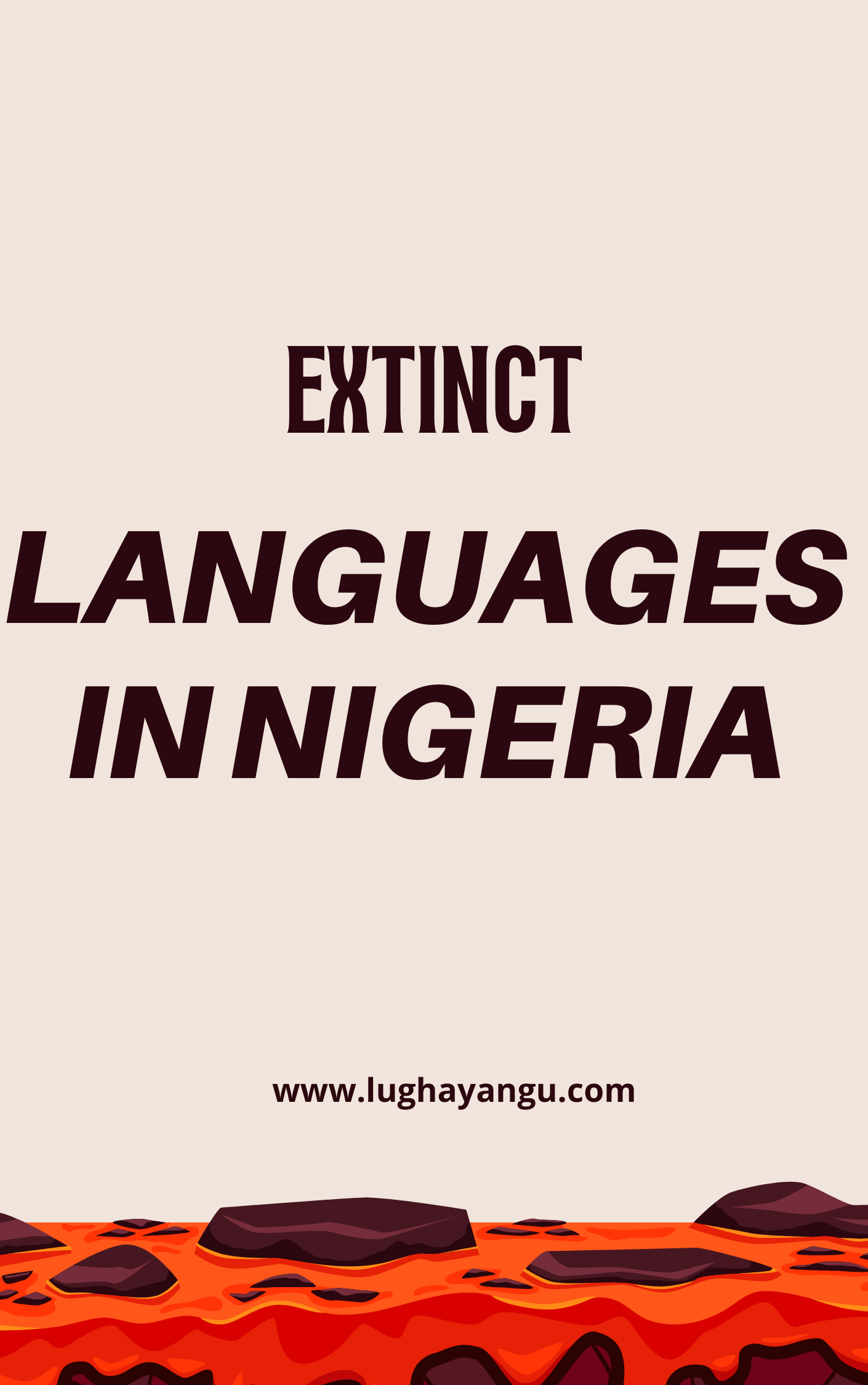
Nigeria has nine extinct languages: Ajawa, Auyokawa, Basa-Gumna, Gamo-Ningi, Kpati, Kubi, Mawa, Teshenawa and Jalaa.
Ajawa is an extinct Afro-Asiatic language formerly spoken in Bauchi State, Nigeria. It became extinct between 1920 and 1940 as speakers switched to Hausa.
Auyokawa is also an extinct Afro-Asiatic language formerly spoken in Auyo LGA, Jigawa State, Nigeria.
Basa-Gumna is an extinct Kainji language of Nigeria that was spoken in Chanchaga, Niger state, and Nasarawa, near the Basa homeland. Two semi-speakers of the language were found in Yakila town in 1986.
The speakers have shifted to Hausa. Gamo (Buta) and Ningi, like Busa-Gumna, are also extinct Kainji languages spoken in west-central Nigeria.
Kpati is an extinct grass field language formerly spoken in Taraba State, Nigeria's Wukari and Takum LGAs. It was first reported as extinct by Grimes in 1984.
Kubi (also known as Kuba, Kubawa) is an extinct Afro-Asiatic language formerly spoken in Bauchi State, Nigeria. Members of the ethnic group now speak Hausa.
Mawa is an extinct and unattested language of Nigeria. It was different from the language of Chad, also known as Mawa, and so is unclassified.
Teshenawa is an extinct Afro-Asiatic language formerly spoken in Teshena town of Kafin Hausa LGA, Jigawa State, Nigeria.
Jalaa (Cèntûm, Centúúm or Cen Tuum) is an extinct language of northeastern Nigeria. The Jalabe (as descendants of speakers of the language are called) speak the Bwilim dialect of the Dikaka language. It is possible (but unconfirmed) that some remembered words have been retained for religious ceremonies. Still, in 1992 only a few elders remember words that their parents had used, and by now, there may not even remain any such rememberers.
Join the Lughayangu Community!

